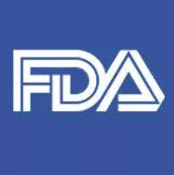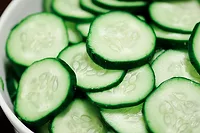FDA Allows Certain Rule Exemptions for Supply Chain Crisis

Due to the spread of the Omicron variant and severe supply chain shortages, the U.S. Food and Drug Administration (FDA) has reissued a list of temporary guidances that will remain in effect. These guidances provide flexibility to help minimize the impact of these supply chain disruptions on product availability.
The temporary policies include:
- Qualified exemption from produce safety rule standards. FDA does not intend to enforce the requirement that a qualified exemption under the Produce Safety Rule means that the majority of sales be to qualified end users for a farm.
- Using refrigerated vehicles and storage units for food use. FDA has issued guidance to provide information and resources related to cleaning and disinfection of refrigerated food transport vehicles and storage units that were temporarily used for the preservation of human remains during the pandemic.
- Flexibility allowing already-issued certifications from lapsing. Since it is difficult to conduct onsite observations and examinations, FDA provides flexibility allowing accreditation bodies to maintain the accreditations of certification bodies. FDA is still not enforcing onsite observation and certificate term requirements, for certain situations.
- Not enforcing the Egg Safety Rule. FDA will provide temporary flexibility to allow certain producers to continue selling to the table egg market, rather than only selling eggs to facilities for further processing. The caveat is that shell eggs must come from a poultry house consisting solely of laying hens up to 45 weeks of age, and certain conditions must be met to ensure food safety.
- The sale of shell eggs in cartons or flats without labels. FDA is still allowing this practice, if a Point of Sale (POS) sign is displayed for each supplier. The POS sign must include the name and business of the manufacturer, packer, or distributor, as well as safe handling instructions for shell eggs that have not been processed (to destroy any Salmonella present). The shell eggs must also be sold by the carton or flat, and no nutrition claims can be made.
- Preventive Controls and Foreign Supplier Verification Programs (FSVP) Food Supplier Verification Onsite Audit Requirements. FDA continues to not enforce requirements of the preventive controls for both human and animal rules and the FSVP rule to conduct onsite food supplier audits, only if a facility that is about to have its audit is in a region or country covered by a government pandemic travel restriction or advisory. Due to pandemic conditions, an onsite audit may not practical, and other supplier verification methods can be used instead.
Additionally, FDA is continuing Food Defense Quick Checks, which include a few general questions to see if the site is subject to the Intentional Adulteration Rule. If it is, the FDA inspector will then ask seven questions to determine the extent of the facility's food defense program. The specifics of the seven questions have not been shared by FDA, but are based on the Intentional Adulteration Rule requirements.
Looking for quick answers on food safety topics?
Try Ask FSM, our new smart AI search tool.
Ask FSM →








